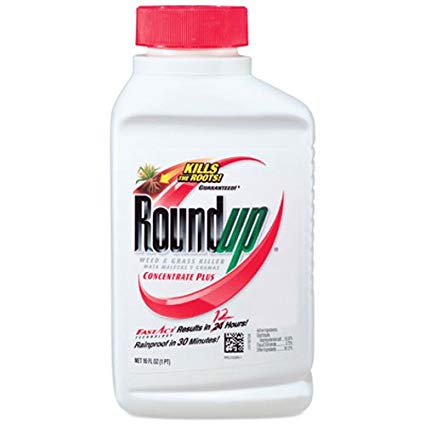Bayer, the maker of Roundup weed killer, has agreed to increase the compensation the company will pay to resolve future non-Hodgkin’s lymphoma claims to $2 billion, after announcing an initial proposal last year that would have set aside $1.25 billion for future cases alleging that Roundup causes cancer. If you or someone you love has been diagnosed with non-Hodgkin’s lymphoma or another type of cancer that you believe was caused by exposure to Roundup weed killer, do not hesitate to speak to a knowledgeable Roundup cancer attorney about your legal options. Bayer has faced a great deal of pressure to negotiate Roundup settlements with plaintiffs who developed non-Hodgkin’s lymphoma after using Roundup and a reputable product liability lawyer can help you determine whether you are eligible to file a legal claim against the company.
Roundup Linked to Increased Cancer Risk
Roundup was first introduced in 1974 by agrochemical company Monsanto, which Bayer acquired in 2018. The use of Roundup has since become widespread, routinely applied by farmers, agricultural workers, landscapers, gardeners, and homeowners to kill weeds without harming crops, lawns, flowers or other plants. In fact, Roundup’s active ingredient, glyphosate, is the most widely used herbicide in the U.S. Unfortunately, a growing body of research has linked glyphosate to an increased risk of non-Hodgkin’s lymphoma (NHL), a potentially life-threatening cancer affecting the lymphatic system. NHL is the term used to describe a diverse group of blood cancers that generally develop in the lymph nodes and lymphatic tissue found in the stomach, intestines, skin or other organs. Recent studies have shown that exposure to glyphosate-based herbicides like Roundup may increase a person’s risk of developing non-Hodgkin’s lymphoma by as much as 41%.
Roundup Cancer Lawsuits Brought Against Bayer
Overall, more than 100,000 Roundup lawsuits have been brought against Bayer by individuals who were diagnosed with non-Hodgkin’s lymphoma or other types of cancer after being exposed to the controversial weed killer. Many of those Roundup cancer lawsuits were filed in various state courts across the country. Other claims filed in the federal court system have been consolidated in a multidistrict litigation (MDL) before Judge Vince Chhabria in the U.S. District Court for the Northern District of California. Following a series of tough losses at trial in the beginning of the Roundup litigation, Bayer struggled to finalize a Roundup settlement that would “bring a long period of uncertainty to an end” and mitigate the “significant financial risks of continued, multi-year litigation and the related impacts to our reputation and to our business.”
Bayer’s Roundup Settlement for Consumers with NHL
Last June, Bayer finally announced in a news release that the company would pay up to $10.9 billion to “bring closure to approximately 75% of the current Roundup litigation involving approximately 125,000 filed and unfiled claims overall.” The settlement proposal included a $8.8 billion to $9.6 billion payment to resolve the bulk of the Roundup lawsuits currently pending against the company and a separate $1.25 billion class agreement to address potential future claims that may be filed by Roundup users who have not yet been diagnosed with NHL. Bayer’s settlement deal was, at the time, among the largest settlements ever in U.S. litigation. However, Judge Chhabria questioned the “propriety and fairness” of the agreement.
On February 3, 2021, Bayer announced that the company had reached a new $2 billion deal to resolve future claims brought by consumers who were exposed to Roundup and later developed non-Hodgkin’s lymphoma. Under the revised settlement agreement, which must still be approved by Judge Chhabria, Bayer will pay $2 billion to cover compensation, outreach and diagnostic assistance over a four-year period of potential future Roundup litigation. Anyone diagnosed with NHL who does not accept the compensation offer under the class plan would still have the right to pursue an individual Roundup lawsuit against Bayer through the court system. Furthermore, anyone who does not file a claim during the four-year settlement period would still have the option of suing Bayer in court.
Pursuing Compensation for Cancer Allegedly Caused by Roundup
Despite agreeing to settle a large percentage of the more than 100,000 lawsuits currently pending against the company over claims that Roundup causes non-Hodgkin’s lymphoma, Bayer has not admitted any wrongdoing and remains adamant in its assertions that Roundup and glyphosate are safe for human use. In fact, glyphosate will remain on the market in the U.S., although Bayer has agreed to request permission from the EPA to include a reference and link to scientific studies about Roundup and non-Hodgkin’s lymphoma on the weed killer label. While everyone in the U.S. has been exposed to Roundup at some point in their lives, there are certain groups of people who are most at risk for toxic Roundup exposure, including landscapers, farmers, groundskeepers, professional gardeners, and agricultural workers. If you were chronically exposed to Roundup at home or at work, and you have been diagnosed with non-Hodgkin’s lymphoma or another type of cancer, our consumer advocates at Leading Justice can help.

